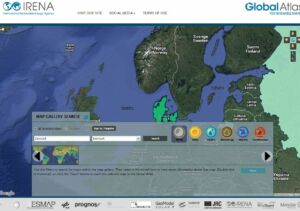News
Global wind atlas to improve wind energy utilisation
This article is more than 10 years old.
DTU a central player in the development of the Global Atlas for Renewable Energy

The Global Atlas for Renewable Energy will lead to better use of wind energy (photo: IRENA)
Denmark’s Technical University (DTU) is among the key players behind a new global wind atlas that aims to improve the harnessing of wind energy by using more precise data regarding prevailing wind conditions.
The Global Atlas for Renewable Energy, which was published yesterday by the International Renewable Energy Agency (IRENA), is expected to help support the establishment of green energy policy in developing nations.
“A wind turbine’s electricity production is drastically improved if it is placed in the optimal area,” said Kenneth Thomsen, the head of innovation at DTU Wind Energy. “With the new atlas, we can pinpoint the best areas – and do so across the entire planet.”
The atlas (here in English) is accessible to the public and provides more detailed data than ever before. It is expected it will greatly impact on the development of future wind energy models.
READ MORE: DTU dominant in Dutch winds
Helping other nations
Organisations from 67 nations have contributed to the development of the atlas over the past four years and it has been financed with the help of a number of institutions, including the Danish program for energy-tech development and demonstration, EUDP.
“Today, Denmark gets 40 percent of its electricity from wind turbines and the wind sector has a massive role in energy supply and jobs in Denmark,” said Lars Christian Lilleholt, the energy and climate minister.
“I’m pleased Denmark has helped develop a new wind atlas so other nations can have a solid foundation to utilise wind energy. Denmark has previously co-operated with South Africa to produce a wind atlas that has fostered the development of the wind sector there.”
That DTU is perhaps not much of a surprise. The university is heavily involved in sustainable development and it was named among the most innovative universities in the world by the news agency Reuters in September.










































